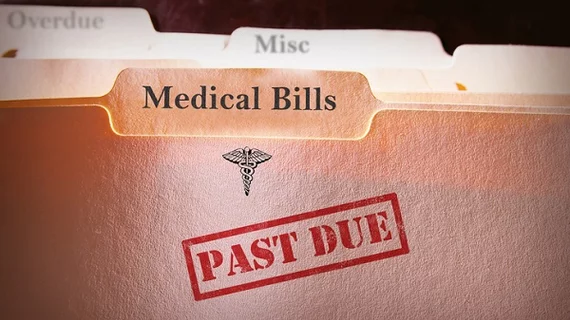‘Sharp divisions’ delay action on surprise medical billing until 2020
Lawmakers hoping to address the issue of patients receiving surprise medical bills for their care are delaying any action until 2020.
Some legislators had hoped to enact a legislative remedy to this problem in 2019, with it drawing ire from politicians in both parties. However, President Trump signed a final appropriations bill on Friday, Dec. 20, which does not include any surprise medical billing changes.
Independent imaging providers and the American College of Radiology, among others, had fiercely opposed some versions of the legislation, concerned they would give insurers too much power in price negotiations. However, Senate Minority Leader Charles E. Schumer, D-N.Y., reportedly lobbied behind the scenes to delay the package of law changes, the Washington Post reported Friday, citing anonymous sources. The Hill also noted earlier this month that there have been “sharp divisions over the legislation” in both parties.
An additional surprise medical billing proposal from the House Ways & Means Committee was met more favorably by radiologists and hospitals alike, and also may have derailed efforts to fast track this legislation. Some are fearful that this effort may fizzle out following its exclusion in end-of-year appropriations, but aides told the Hill there is still hope it may get done in 2020.
“It’s extremely disappointing that a bicameral, bipartisan deal backed by the White House to protect patients from surprise billing appears to have gone off the rails. You wonder who made the call to stop our bill, but clearly the best interest of the patient is not at heart,” Rep. Greg Walden, R-Ore., one of the backers of a version that radiologists opposed, said in a statement.
In a news announcement about the delay, the ACR said it remains committed to helping lawmakers devise a legislative solution to addressing unanticipated medical bills. However, it wants certain principles included in any final legislation that protect patients and keep them out of the middle, ensure reasonable provider payment rates and safeguard patient access to care.
“The aforementioned principles are critical to any final, equitable ‘surprise billing’ policy solution and will ensure patients are protected and have access to robust provider networks, while also providing a fair and balanced mechanism for both providers and insurers to resolve billing disputes,” the college said in its announcement. “The ACR looks forward to continuing to work with Congress to achieve this goal.”

